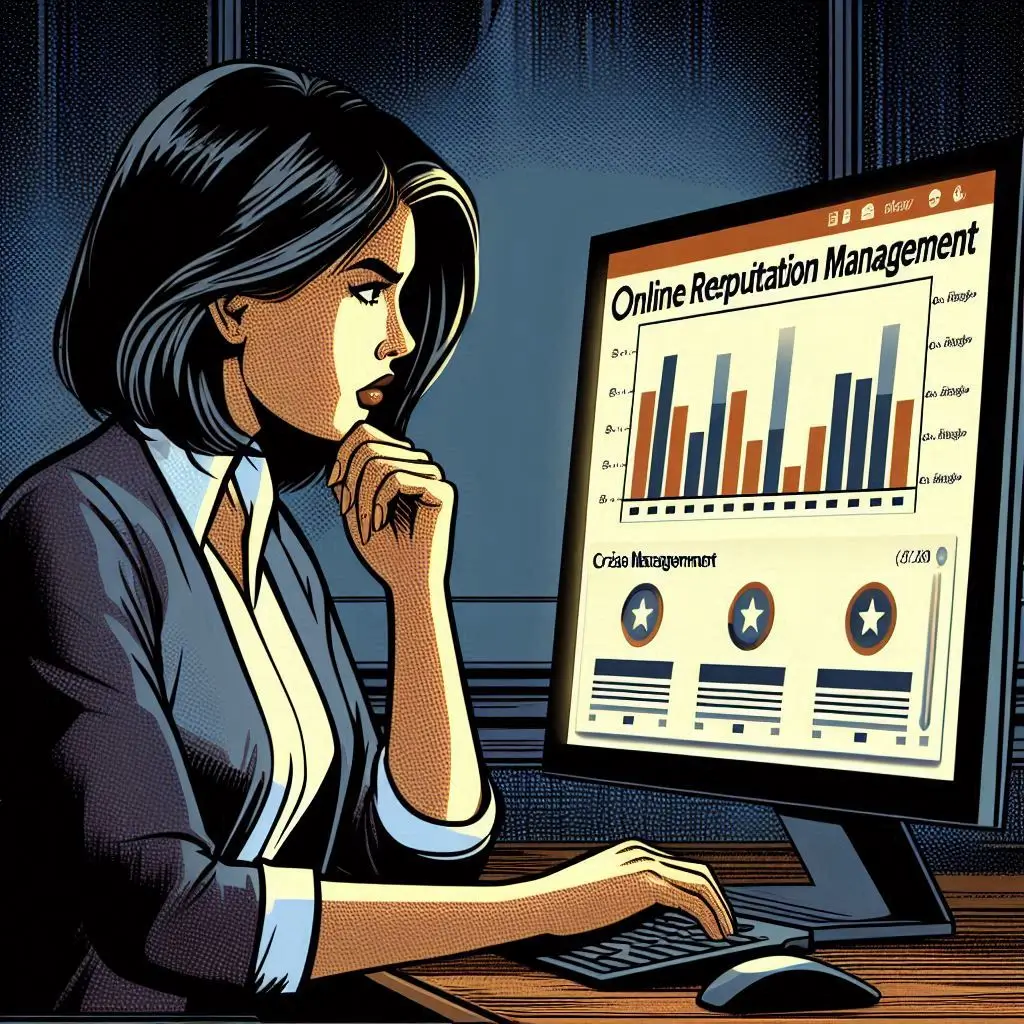
With everyone turning to online reviews, social media, and search engines to form an opinion about businesses, it’s critical to be prepared for any potential crisis that could harm your reputation. But how can you ensure your business is ready to handle a reputation crisis swiftly and effectively?
The Importance of Crisis Management in Online Reputation Management
For business owners, reputation is everything. It’s a reflection of how the public perceives your company, and a negative shift in this perception can significantly impact customer trust, sales, and brand value. Not only does this affect existing relationships with clients, but it can also scare away potential customers. The pressure to maintain a positive online reputation is high, and the consequences of not handling a crisis properly are severe.
Common Pain Points for Business Owners:
- Fear of damaging their business image: One negative review or social media post can spiral into a much larger issue.
- Lack of preparedness: Many businesses don’t have a crisis management plan until a reputation issue arises.
- Inability to control the narrative: In the digital space, information spreads fast, and controlling it can feel impossible.
- Long-term damage: Bad press can have lasting effects if not managed correctly.
- Loss of trust: Regaining customer trust after a crisis can take years.
Let’s dive into the essential steps you can take to handle these pain points effectively.
How to Be Ready for a Crisis Before It Happens
1. Monitor Your Online Presence Proactively
To manage a crisis, you need to know what’s being said about your business online. Using tools like Google Alerts, social media monitoring apps (Hootsuite, Mention, etc.), and review management platforms can help you stay on top of mentions, reviews, and comments.
Actionable Tip:
- Set up automatic alerts for your business name, key services, and leadership team to get real-time notifications about any negative press or reviews.
2. Build a Crisis Management Team
Every business, regardless of size, should have a crisis management team in place. This team will act quickly in the event of a crisis and should include people from customer service, PR, legal, and senior management.
Actionable Tip:
- Regularly train your crisis management team to ensure they are ready to respond swiftly and appropriately to any situation.
3. Have a Response Plan Ready
An effective crisis management plan outlines step-by-step actions your team should take when a reputation crisis occurs. This plan should include how to address the media, how to respond on social media, and who will be the point of contact for inquiries.
Actionable Tip:
- Draft several response templates for different types of crises (negative reviews, social media backlash, etc.). Ensure that they maintain a professional tone and focus on resolving the issue.
4. Create a Communication Strategy
Clear, transparent communication is key during any crisis. When bad news spreads, staying silent or giving vague responses can damage your credibility even more. Have a communication strategy that emphasizes timely, honest, and empathetic messaging.
Actionable Tip:
- If your business makes a mistake, own up to it. Offering a sincere apology and explaining how you’re fixing the problem can turn things around faster than avoidance.
5. Focus on Customer Relationships
Building strong, authentic relationships with your customers can help cushion the blow during a crisis. A loyal customer base is more likely to support and defend your brand in times of trouble.
Actionable Tip:
- Encourage customer feedback and show that you value their opinions. Respond to both positive and negative reviews regularly.
6. Plan for a Post-Crisis Reputation Rebuild
Once the crisis has passed, the work isn’t over. You’ll need to rebuild trust and show that you’ve taken steps to fix the issue. This could involve rebranding, launching a PR campaign, or focusing on positive reviews and customer testimonials.
Actionable Tip:
- After a crisis, ask your satisfied customers to leave reviews, and actively promote positive stories about your business.
Crisis Prevention: The Best Defense is a Good Offense
While being prepared for a crisis is crucial, prevention is always better than a cure. Regularly auditing your online presence, addressing minor issues before they escalate, and maintaining excellent customer service can significantly reduce the risk of a major reputation crisis.
Tips to Prevent Reputation Damage:
- Respond promptly to customer concerns
- Quick responses show customers that you care about their feedback and are committed to resolving issues.
- Encourage positive reviews
- Happy customers are often willing to leave positive reviews if asked, helping to drown out the negative ones.
- Engage with your audience on social media
- Keeping an active, positive presence on social media allows you to control your narrative and foster goodwill.
- Maintain transparency
- Being open and honest about your business practices builds trust and reduces the chances of a backlash if something goes wrong.
Final Thoughts
Online reputation management is a vital part of any business strategy, and being prepared for a crisis is essential. By monitoring your brand, having a solid plan in place, and focusing on transparency, you can protect your reputation and recover quickly from any issues. Remember, it’s not about avoiding crises entirely—it’s about handling them effectively when they do arise.
Crisis management isn’t just a protective measure; it’s a strategic approach that can showcase your business’s resilience, transparency, and dedication to customer satisfaction.


